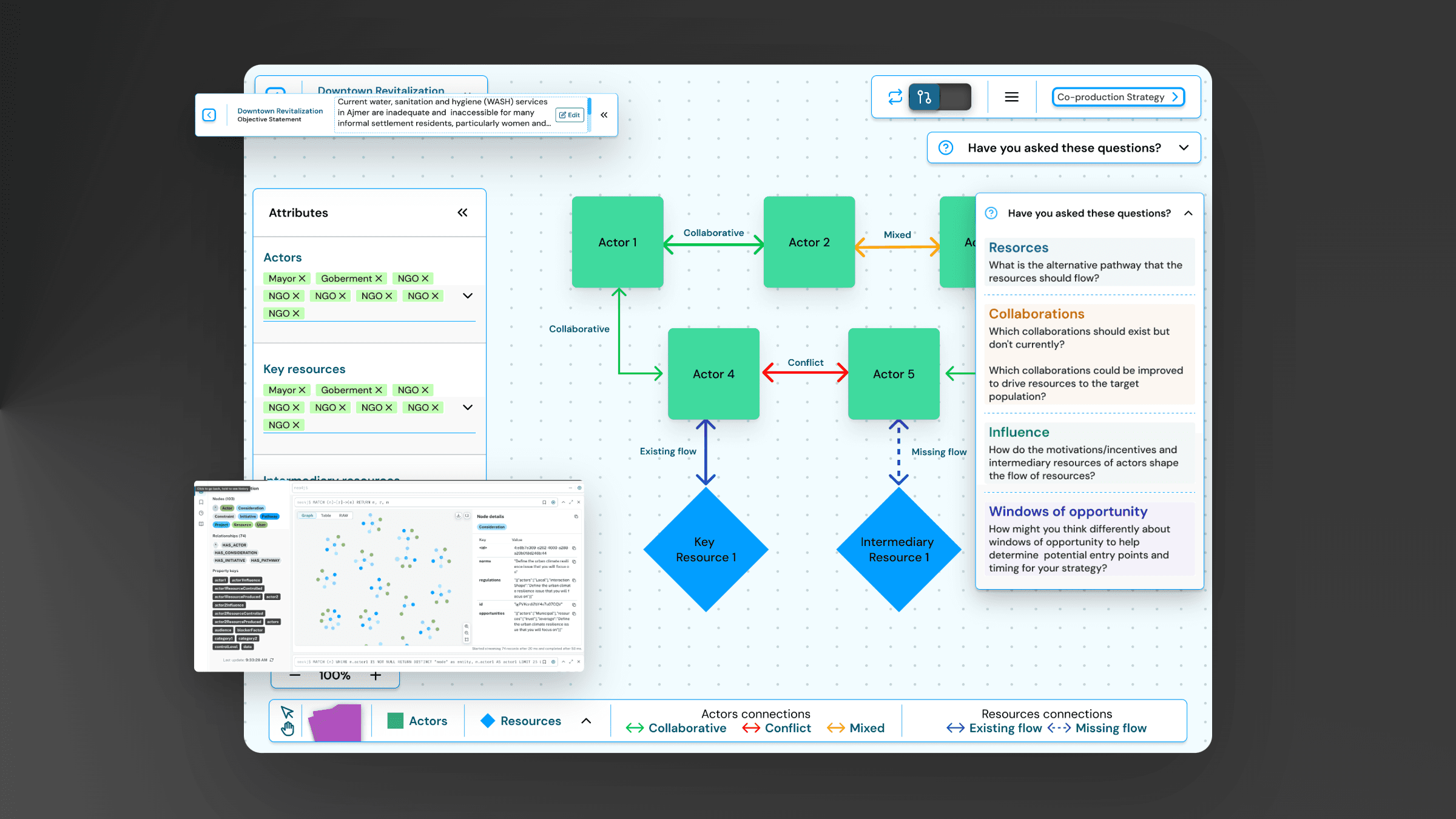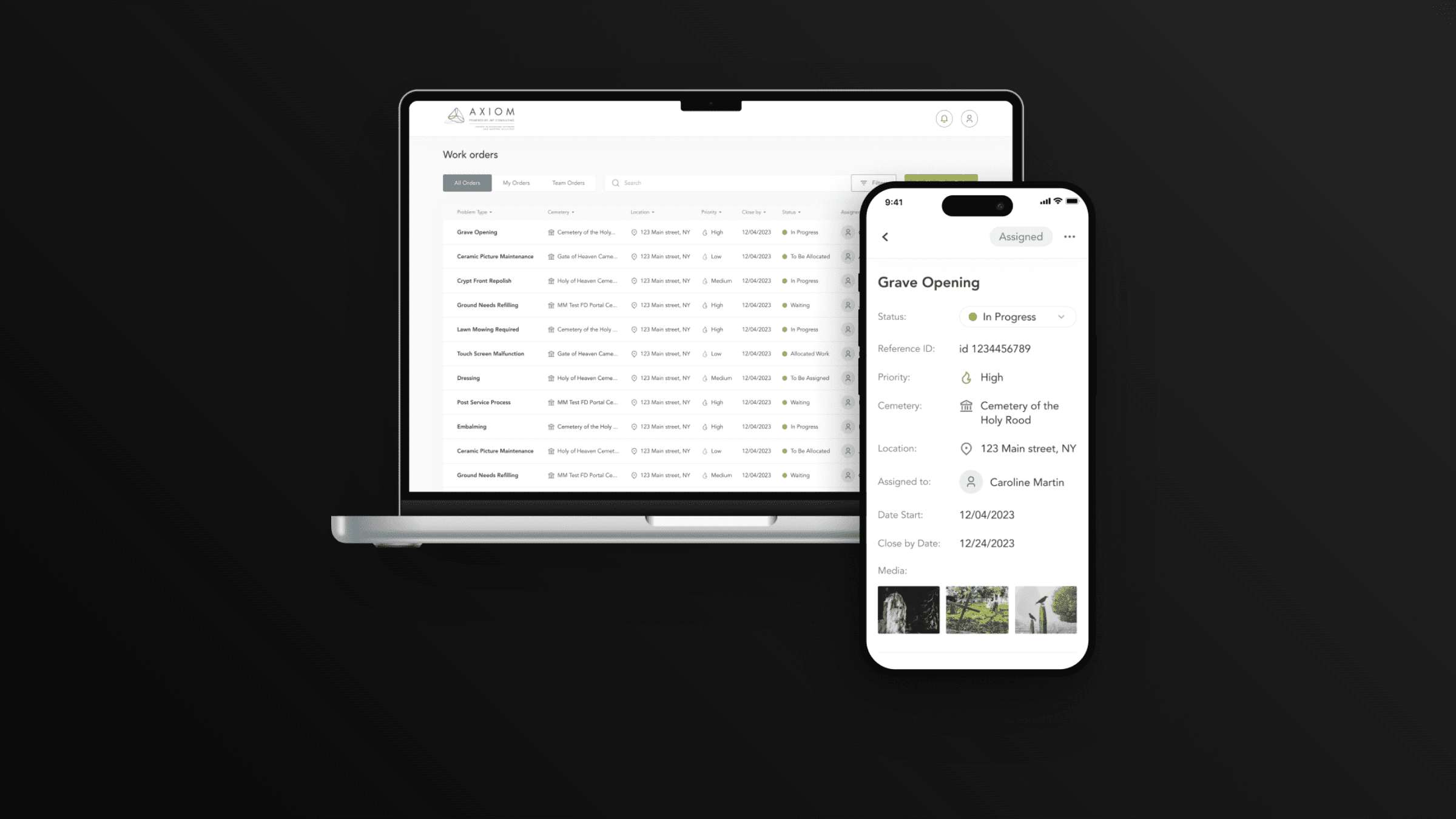We collaborated with London-based IIED to develop a tool that transformed complex urban resilience research into actionable insights.
The Urban Challenge: Navigating Complexity in a Changing World
Over half the world’s population now lives in urban areas, placing immense pressure on cities to adapt to rapid urbanization, climate change, and resource scarcity. Cities are complex systems where governments, NGOs, and community leaders must collaborate to ensure resources flow equitably and sustainably. Yet, translating academic research on urban resilience into actionable solutions has proven a significant challenge.
For the International Institute for Environment and Development (IIED), this gap was critical. Their extensive research on urban systems revealed deep insights into resource flows, power dynamics, and resilience strategies. However, they lacked a practical tool to empower urban planners, NGOs, and other stakeholders to visualize these dynamics and make informed decisions in real time. Without a clear, actionable solution, decision-makers were left grappling with complexity, disconnected stakeholders, and reactive resource management.
Understanding the Players and Their Struggles
Urban resilience isn’t just about cities—it’s about the people and organizations shaping them. IIED’s stakeholders included diverse groups: government agencies ensuring infrastructure is in place, NGOs advocating for vulnerable communities, and urban planners tackling resource allocation. Each group faced distinct challenges.
Government Agencies needed tools to navigate intricate resource distribution systems and ensure policies were backed by data.
NGOs struggled to pinpoint and influence key decision-makers in resource flow systems.
Urban Planners lacked intuitive systems to visualize and manage complex urban dynamics.
Interviews revealed shared frustrations:
Information Overload: Data was abundant, but the lack of a streamlined approach made it difficult to act.
Disconnected Efforts: Fragmented collaboration across sectors often led to duplicated efforts or missed opportunities.
Technical Barriers: Many tools required expertise beyond the reach of non-technical users.
Static Planning: Decision-making was reactive and lacked the agility to address rapidly changing urban needs.
From Insight to Action: Crafting a Tool for Change
IIED’s vision was ambitious: to create a platform that translated research into actionable insights, helping stakeholders visualize resource flows and identify leverage points. Together, we built a proof-of-concept application designed to simplify complex systems and empower users to act strategically.
How We Did It: We achieved measurable success by building an interactive mapping tool that visualized the relationships between resources, actors, and gatekeepers, leading to actionable insights for decision-makers. The platform provided:
Resource Flow Mapping: A visual interface to track where resources originated, who controlled them, and how they flowed through urban systems.
Actor Relationships: Dynamic maps showcasing the influence and interactions between government bodies, NGOs, and other actors.
Guided Inputs: Intuitive prompts enabled users to input data without technical expertise, simplifying the learning curve.
Influence Scoring: An algorithm assessed actors’ control and influence, highlighting potential areas for collaboration or intervention.
Scenario Exploration: Users could model "what-if" situations to test strategies for improving resilience.
Heuristic Recommendations: The system provided qualitative suggestions, such as brokering partnerships or reallocating resources, tailored to each user’s inputs.
Bringing Urban Complexity to Life
The platform wasn’t just a tool—it was a bridge between academia and action. Its design was deeply rooted in human-centered principles, ensuring accessibility and relevance for a diverse user base. We worked hand-in-hand with IIED to prioritize their stakeholders’ needs, conducting user workshops and integrating feedback at every stage.
The result? A system that transformed dry, academic data into a vibrant, actionable resource. Users could see, for example, how a single actor’s influence over a critical resource could ripple through an entire urban system, empowering them to make informed decisions about partnerships, policies, and resource allocation.
Measuring the Impact: A Resilient Future Takes Shape
The platform delivered far-reaching results:
Actionable Insights: Stakeholders reported a 30% improvement in resource allocation efficiency, thanks to clearer visualizations and guided inputs.
Collaborative Success: By visualizing actor relationships, NGOs and government agencies identified shared goals and reduced duplicated efforts.
Positive Reception: Over 85% of users found the tool intuitive and impactful, highlighting its ability to demystify complex systems.
Scalability: Designed with flexibility in mind, the platform was piloted across multiple urban contexts, proving its adaptability to varying needs and challenges.
A Vision for the Future: Empowering Stakeholders Everywhere
This project was more than a technical solution; it was a transformative approach to urban resilience. By turning IIED’s research into an accessible, interactive platform, we bridged the gap between theory and practice. Decision-makers now have a tool to not only understand their cities but also to shape their futures.
As urban environments face mounting challenges, this platform stands as a testament to the power of collaboration, innovation, and design. It’s not just about understanding resilience—it’s about building it, one city at a time.




